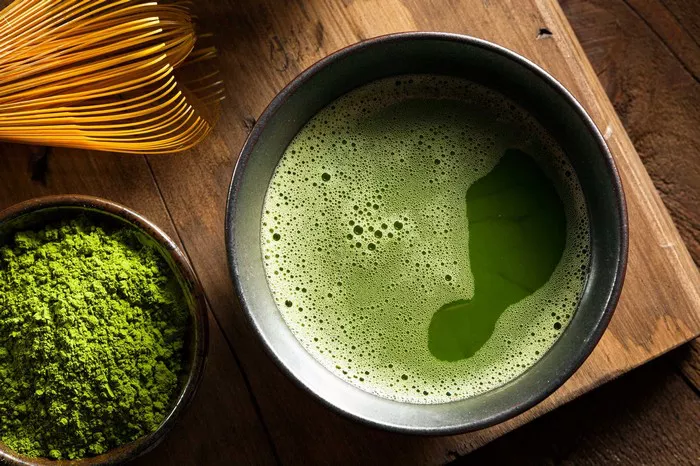Coffee, a beloved beverage enjoyed by millions around the world, has been the subject of extensive research regarding its impact on health. While coffee has gained a reputation for its potential health benefits, such as antioxidant properties and improved mental alertness, the timing of consumption may play a crucial role in maximizing these advantages. In this comprehensive guide, we will explore the science behind coffee and delve into the optimal times to indulge in this flavorful beverage for the greatest health benefits.
Morning Ritual: A Boost for Cognitive Function
Starting your day with a cup of coffee has become a morning ritual for many, and for good reason. The natural circadian rhythm of our bodies produces higher levels of cortisol, a stress hormone, in the early morning. Consuming coffee during this time enhances the effectiveness of cortisol, leading to improved alertness and cognitive function. The caffeine in coffee blocks adenosine, a neurotransmitter that induces sleepiness, resulting in increased neural firing and the release of dopamine. Enjoying your coffee in the morning not only jumpstarts your day but also aligns with your body’s natural hormonal patterns, promoting optimal mental clarity and focus.
Mid-Morning Break: Sustained Energy Levels
As the morning progresses, a mid-morning coffee break can be an excellent way to sustain energy levels and combat the post-lunch dip in alertness. Consuming coffee between 9:30 AM and 11:30 AM aligns with the typical cortisol dips and peaks, allowing for a natural energy boost. This mid-morning coffee can provide a welcome pick-me-up without interfering with your body’s ability to wind down in the evening. Additionally, the presence of polyphenols in coffee contributes to its antioxidant properties, potentially supporting overall health. Pairing your mid-morning coffee with a nutritious snack can further enhance its positive effects, providing a balanced and revitalizing experience.
Post-Lunch Respite: Combatting Afternoon Slumps
The post-lunch hours often bring about a dip in energy and concentration levels, commonly known as the afternoon slump. A carefully timed cup of coffee during this period can help combat fatigue and enhance alertness. The caffeine in coffee blocks adenosine receptors, preventing the onset of drowsiness and promoting the release of adrenaline. However, it’s crucial to avoid excessive consumption in the late afternoon to prevent interference with nighttime sleep patterns. Limit your coffee intake to one or two cups and aim to enjoy your last cup no later than 2:00 PM to ensure its effects do not linger into the evening.
Pre-Exercise Boost: Enhancing Physical Performance
For those who engage in regular physical activity, consuming coffee before a workout can offer performance-enhancing benefits. The caffeine in coffee stimulates the central nervous system, leading to the release of adrenaline and an increase in the breakdown of body fat for use as energy. This can improve physical performance by boosting endurance and reducing perceived exertion. Drinking coffee 30 to 60 minutes before exercise allows for the peak concentration of caffeine in the bloodstream during the workout. The performance-enhancing effects of pre-exercise coffee make it a popular choice among athletes and fitness enthusiasts alike.
Afternoon Decaffeinated Delight: Balancing Enjoyment and Sleep
As the day progresses, it’s wise to transition to decaffeinated coffee in the late afternoon and evening hours. Consuming regular coffee during this time may interfere with the body’s ability to wind down for sleep, as caffeine has a half-life of several hours. Opting for decaffeinated coffee allows you to enjoy the comforting ritual of coffee without disrupting your sleep patterns. The process of decaffeination removes most of the caffeine while retaining the rich flavor and potential health benefits associated with coffee. Sipping on a warm cup of decaffeinated coffee in the afternoon can be a relaxing and enjoyable way to unwind without compromising your sleep quality.
Hydration and Moderation: Key Principles for Coffee Consumption
While coffee offers numerous health benefits, it’s crucial to balance its consumption with hydration and moderation. Coffee is a diuretic, meaning it can lead to increased urine production and potential dehydration. Counteract this effect by ensuring adequate water intake throughout the day. Additionally, excessive caffeine intake can lead to jitteriness, increased heart rate, and disrupted sleep. Moderation is key, and individual tolerance to caffeine varies. Aim for a daily caffeine intake of around 200 to 400 milligrams, roughly equivalent to two to four cups of coffee, to maximize the health benefits without the drawbacks associated with excessive consumption.
Evening Decaffeinated Ritual: Winding Down for Sleep
As the day draws to a close, incorporating a soothing cup of decaffeinated coffee into your evening ritual can be a mindful way to wind down. The warmth and familiar taste provide comfort without the stimulating effects of caffeine. This decaffeinated evening coffee can serve as a bridge between the busyness of the day and the relaxation needed for quality sleep. Additionally, decaffeinated coffee contains antioxidants that contribute to overall health. As you savor the rich flavor of your evening coffee, you can indulge in a moment of tranquility, setting the stage for a restful night’s sleep.
Conclusion
In conclusion, understanding the optimal times to enjoy coffee can enhance its positive impact on your health and well-being. From jumpstarting your morning with enhanced cognitive function to combatting afternoon slumps and enjoying a decaffeinated evening ritual, aligning your coffee consumption with your body’s natural rhythms is key. By incorporating coffee into your daily routine with mindfulness and moderation, you can harness its benefits without compromising sleep or overall health. So, savor your coffee at the right times, and let this beloved beverage become a source of enjoyment, vitality, and well-being in your daily life.

























